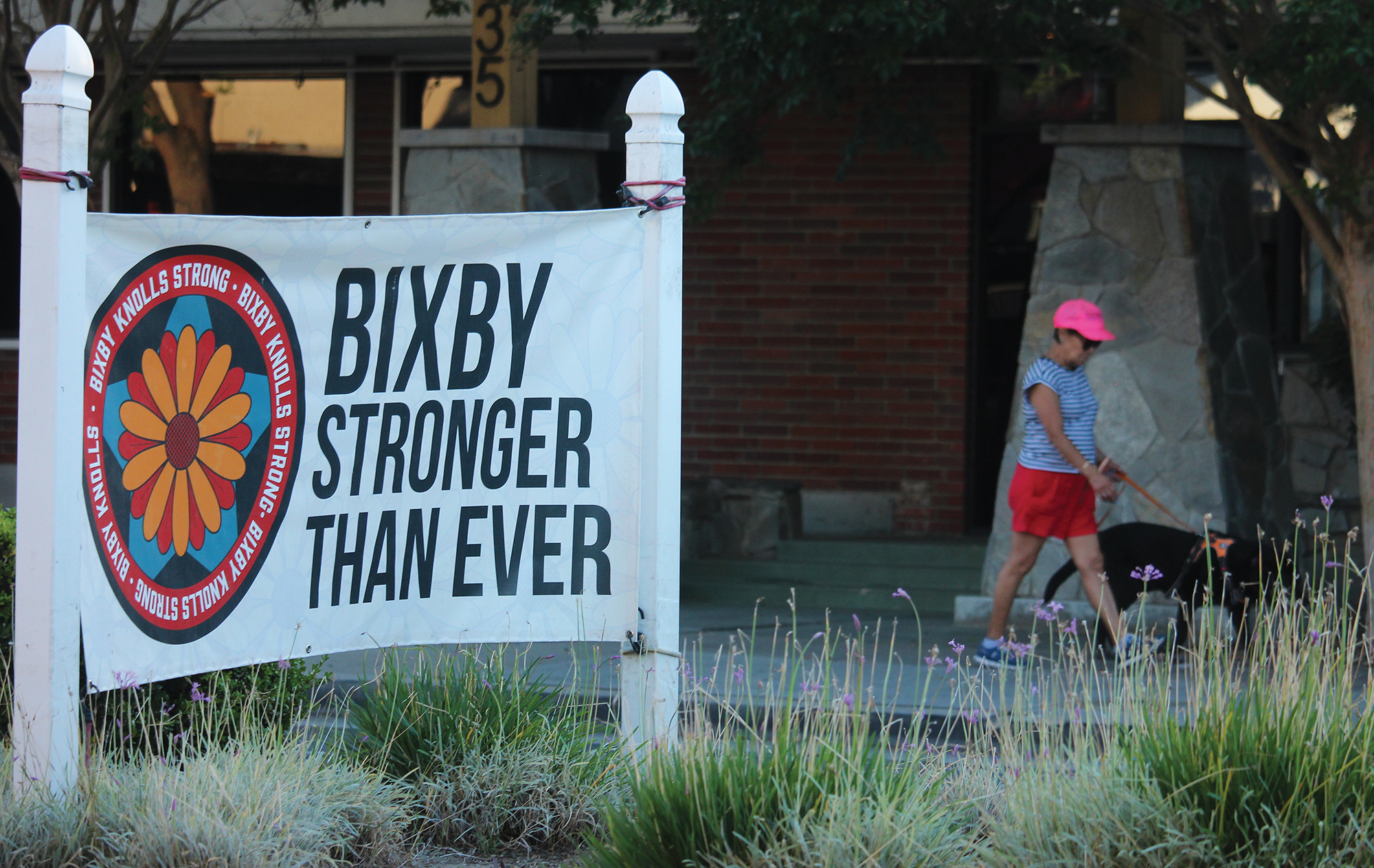
The Bixby Knolls Business Improvement Association is set to receive $200,000 in gap funding as part of a $1.3 million spending package unanimously approved by the City Council Tuesday.
The spending package was advanced to the council by the Budget Oversight Committee, which voted unanimously on the item Tuesday ahead of the council meeting. The three-member committee includes councilmen Al Austin and Roberto Uranga, whose districts include the entirety of the Bixby Knolls community.
“We stated our case, we showed the value of what we do for our members of this community and citywide,” association Executive Director Blair Cohn told the Business Journal Wednesday. “It’s a sigh of relief.”
The one-time monies out of the city’s general fund also will go toward a vision plan for the city’s COVID-19 memorial, the city’s fireworks taskforce, speed mitigation on residential streets, LBPD’s helicopter air support unit and more.
For the last decade, the Bixby Knolls association has received $200,000 annually from the city as the successor agency of the Redevelopment Agency. The contract for that funding expires in September and, following a particularly challenging 18 months due to the coronavirus, the future of the organization was uncertain.
Cohn said the gap funding will sustain the association through the next year as it examines ways to become self-sustaining. The group already has begun reaching out to businesses along Orange Avenue from Wardlow Road to San Antonio Drive in an effort to expand its boundaries and bring in new members.
Other options on the table include increasing the annual membership fee and creating a property business improvement district, which would see landlords paying annual fees along with business owners.
The association provides services that benefit not only business owners but also property owners and residents of the community, including private security, landscaping and street cleanups, facade improvements and a number of social clubs. The group also hosts concerts, popup events and the popular First Fridays street fair, among other things.
Since the news of the association’s dire financial situation was made public, the community has pulled together and donated thousands of dollars. Because many neighborhood residents have voiced an eagerness to continue supporting Cohn and the association, he said there has been talks about creating a “community member” designation for those who want to provide financial support monthly or annually.
But for now the association’s purse strings remain tight, Cohn said, noting that the city’s budget does not take effect until Oct. 1. He said he still must work out with the city the mechanism for how the funding will work—a lump sum given to the group or the monthly reimbursement of expenditures.
“So we’re not counting our money yet,” Cohn said, “but it will help us breathe a little bit.”
